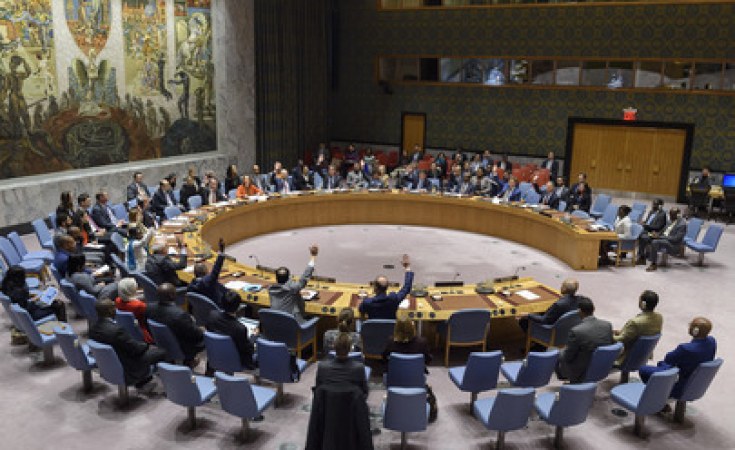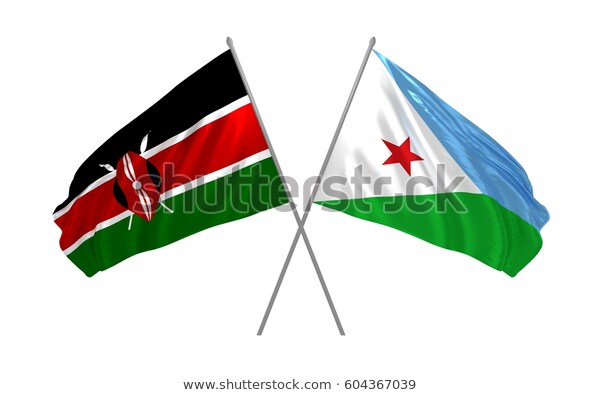
By Antonio Cascais
Africa usually speaks with one voice when it comes to electing representatives on the world stage. So, why is a diplomatic tussle looming at next week’s UN Security Council election in New York?
From Kenya’s perspective, it seemed like they already had it in the bag: In a secret ballot in February, the member states of the African Union (AU) nominated Kenya to take one of three African seats on the United Nations (UN) Security Council, which will become vacant in January 2021.
With 37 votes to 13, the race to become South Africa’s successor was clearly against Kenya’s contender, Djibouti. But then the AU’s headquarters in Addis Ababa received a letter from Djibouti.
The small French and Arabic-speaking country in the Horn of Africa demanded that the AU reconsider its decision. According to Djibouti’s ambassador to the UN, the AU’s support for Kenya is against the rules. During the vote, concerns were raised that if Djibouti were to be elected, then Africa would be represented by three francophone countries in 2021, with Niger and Tunisia filling the other two African seats.
In the letter, Djibouti dismissed these concerns as absurd. After all, this has happened before: Most recently in 2001, when Mali, Mauritius and Tunisia were represented on the UN committee at the same time.
Francophones vs. Anglophones?
The diplomatic fronts have hardened just a few days before the decisive vote of the UN General Assembly in New York on June 17. Because Djibouti still refuses to withdraw his candidacy. Roba Sharamo, director of the Institute for Security Studies in Addis Ababa, suspects geopolitical causes behind this. “Djibouti is likely to be urged by foreign powers to maintain his candidacy against all odds,” said the security expert. First, it was speculated that some French-speaking countries might put pressure on Djibouti, but China’s role is now becoming more and more important.
Just a few days before the UN General Assembly holds its decisive vote on June 17 in New York, Djibouti is still refusing to withdraw its candidacy. Diplomatic tensions are running high.
Roba Sharamo, the director for the Institute of Security Studies in Addis Ababa, suspects geopolitics have played a role. “There are lots of stories, that maybe Djibouti is being pushed by external powers,” he told DW. “There were suspicions that maybe some French-speaking countries are behind it, but now it’s becoming more and more clear that China is pushing Djibouti.”
In any case, Africa is giving a mixed picture, which isn’t a good look for the continent. “I think ideally Africa should speak with one voice and only present one candidate,” says Sharamo.
Is China behind the conflict?
Kenyan political scientist Martin Oloo does not believe the alleged dispute between Francophone and Anglophone countries is the main issue in this case. “The AU wanted to encourage only one country to run,” he told DW. “That we have two countries now explains the big division between the west and the east.”
Kenya — the candidate for the West — enjoys support from the US and most European counties. Djibouti meanwhile is the candidate of choice for China and Russia, who would work with them in many areas on the UN level.
The importance of having three African, non-permanent members of the UN Security Council should not be undervalued, emphasizes Oloo: “China wants to keep this group, which is known as A3.” China already exerts significant influence over both Djibouti and Kenya. But if push comes to shove, Oloo believes China would probably side with Djibouti.
But both countries claim their candidacy is being supported by China. Experts view this as a sign of China’s growing influence in Africa.
“Both Kenya and Djibouti have maneuvered themselves into being greatly dependent on China,” says Sharamo. “China is Kenya’s largest creditor and also operates the largest ports in Djibouti.”
As a permanent member of the Security Council, China has been reluctant to speak out about this diplomatic conflict, instead declaring that it intends to “support Africans in resolving African problems in an African way.”
Africa: The game ball of the great powers?
So, what role could African countries like Kenya or Djibouti play in the Security Council? “The balance of power in the Security Council is very clearly distributed,” explains Oloo. “On the one hand there is the US, which is mostly supported by the Europeans, and on the other hand, the Russians work in tandem with China.”
So far, the African countries who have taken up seats on the council have been unable to formulate and implement their own interests. Even South Africa — who will leave the council at the end of the year to be replaced by Kenya or Djibouti — has failed to set its own course over the past two years.
Liesl Louw-Vaudran from the Institute for Security Studies in Pretoria, South Africa, sees it differently: “South Africa achieved a lot in terms of strengthening the A3,” she told DW. “In the beginning of 2019 there was some controversy in the UN Security Council around the elections in DR Congo, but after that the South African diplomacy contributed to an independent African position.”
However, South Africa joined the Security Council at a difficult time: The elections in DR Congo left little room for other issues and since 2020, the work of the South African diplomats have been significantly limited due to the COVID-19 pandemic.
Security Council reforms ‘long overdue’
There are already enough issues that Africa urgently needs to resolve at the UN level, says Sharamo. Especially as the voice of African states remains barely noticed.
“Africa has long called for reform of the Security Council,” explains Sharamo. “I think the African continent is a major player in the world and at the same time is a continent which is hosting a lot of peacekeeping missions. I think it is time to have an African country as a permanent UN Security Council member, as the world becomes more and more interdependent.”
But Oloo has a more pessimistic outlook and does not think anything will change following the election of Africa’s next representative on June 17: “Regardless of whether Kenya or Djibouti wins the vote, Africa will remain a disunited continent and therefore a ‘game ball’ of the great powers.”
The article first appeared on AllAfrica.com

